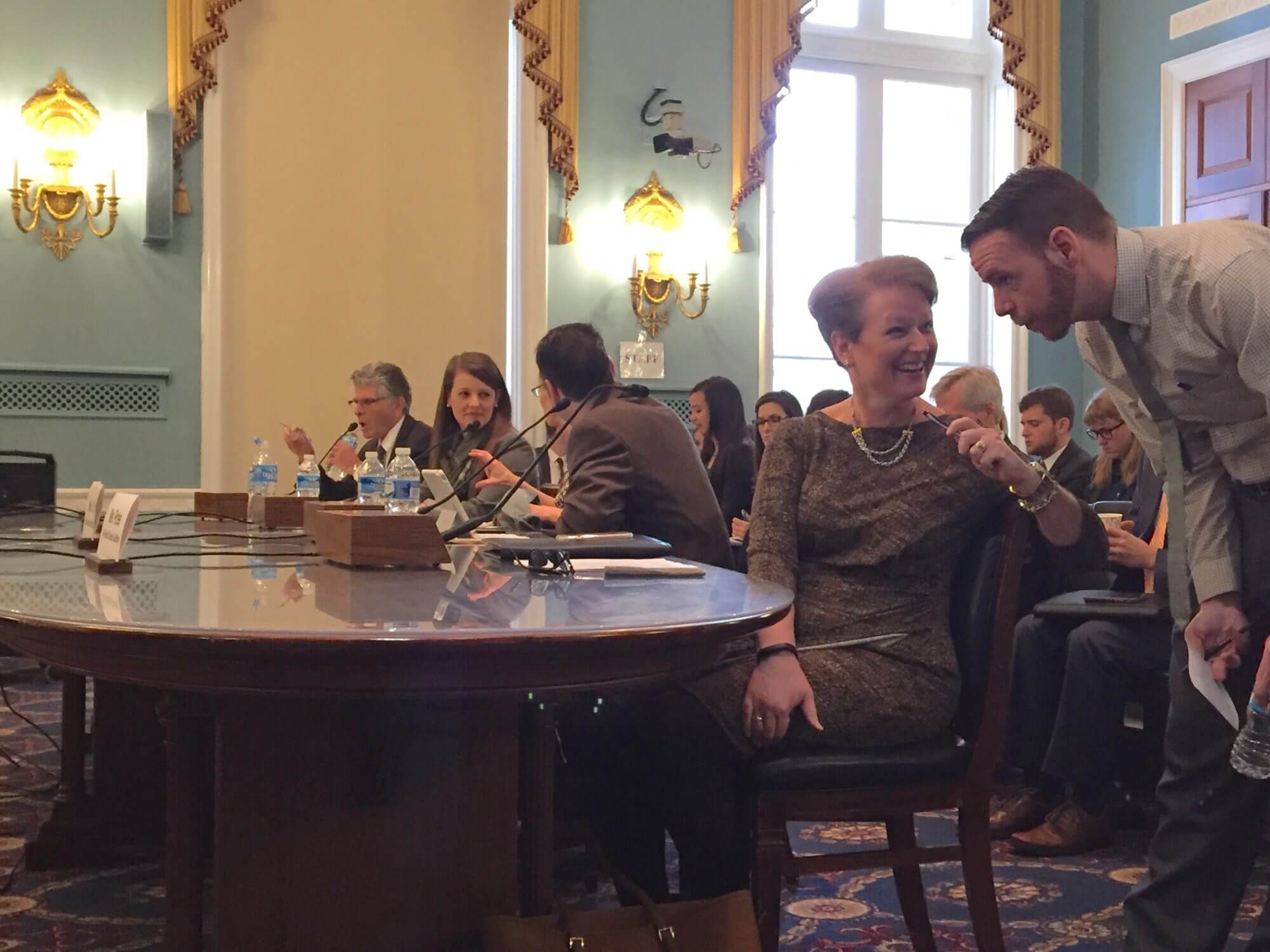
Witnesses chat with aides before the nutrition subcommittee hearing.
WASHINGTON- Tighter restrictions for access to federal food assistance programs will jeopardize the health of low-income people who struggle to get healthy food, witnesses at a House subcommittee hearing said Tuesday.
Representatives of nonprofit groups receiving money from the U.S. Department of Agriculture testified in front of the Agriculture Committee’s nutrition panel, saying that federal funds have been helpful in defraying the cost of fresh produce for people in need.
Although the projects have reported success, recent changes in work requirements for the eligibility for Supplemental Nutrition Assistance Program—formerly called food stamps—may undermine their progress, they told the subcommittee.
The federal government spent $84 billion providing food stamps for 45 million people in 2015, according to the U.S. Department of Agriculture.
But as of January, many states reinstated a federal rule limiting SNAP recipients to three months of joblessness before they lose eligibility for food stamps, a requirement that states were able to waive during the Great Recession.
Many unemployed SNAP beneficiaries under the age of 50 have less than three months to find a part-time job or enroll in a training program, if they are not disabled or raising children. The tighter eligibility requirements could affect more than 500,000 recipients over the next year, according to a report from the Center on Budget and Policy Priorities, a liberal think tank.
This January, 23 states reinstated the time limits because they no longer had “high unemployment or depressed labor markets” and could not qualify for federal waivers, according to a USDA memorandum. Other states chose to let their waivers expire in favor of “[reducing] reliance on public benefits,” in the words of a press release from Louisiana’s Department of Children and Family Services.
Changes to SNAP such as unemployment time limits put more pressure on the private sector to absorb the effects, said Rep. James P. McGovern, D-Mass. Witnesses told him that further changes in the program would be “devastating” to the work they do.
“We need charities, we need private money, we need these partnerships, but they can’t make up the difference,” said McGovern.
The changes would effectively reduce the number of low-income people who can use incentive programs run by nonprofits like the Fair Food Network in Michigan. The network has tested a program called Double Up Food Bucks allowing SNAP recipients to receive additional money to spend on Michigan-grown produce.
Eighty-five percent of SNAP shoppers in Michigan in 2015 reported that they ate more fruits and vegetables from farmers markets because of the program, said Dr. Oran Hesterman, CEO of the Fair Food Network. There is no “single silver bullet” for solving hunger and other health challenges, he said, but these incentives have worked to improve SNAP’s health outcomes.
“We can take a program that has been designed primarily as an anti-hunger program and turn it into an anti-hunger and pro-health program at the same time,” he said.

